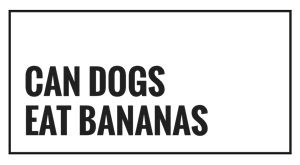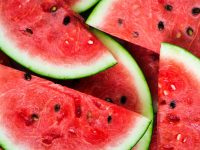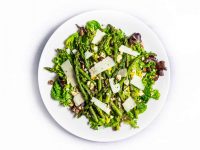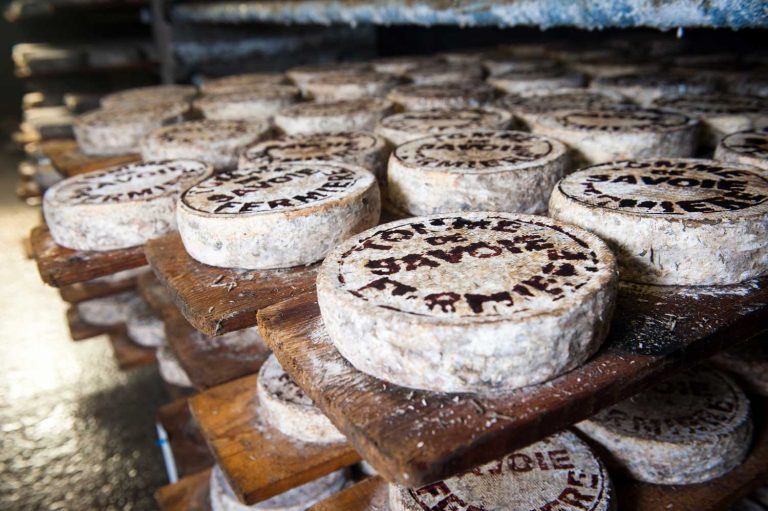Whether melted over nachos, topped off on pizza, or sweetened for dessert, cheese is a crucial part to most people’s diets. Unless you’re vegan or lactose intolerant, you likely consume your fair share of cheesy goodness. But can dogs also enjoy this delicious food product? Is cheese good for dogs? Today we will answer these questions.
Can Dogs Eat Cheese?
You turn your back for one second and your dog has gobbled your cheese right off the counter. Should you be worried?
The American Kennel Club (AKC) gives certain cheeses the dog safety approval. However, the type of cheese and amount served make a huge difference. It is also important to be aware that, like humans, not all canines are cheese compatible.
Choose Your Cheese Wisely
Your dog might not be a food connoisseur, but you can make sure to pick out the perfect cheese to suit her health. When it comes to canine nutrition, not all cheeses are created equal.
The AKC warns against serving dogs rich or fatty cheeses. Also be sure to avoid cheeses that have herbs, spices, or flavorings such as garlic inside of them. These options could cause stomach and intestinal upset in your dog.
On the other hand, cheeses that are more ideal for dogs include low-fat options. These choices include cottage cheese and mozzarella. However, it’s also best to search for low sodium versions of these cheeses. Sodium level is the key area of concern when it comes to dogs eating cheese.
Is Cheese Good for Dogs?
Now that you know more about which cheese to choose, let’s see why it’s worth serving in the first place. Likely your dog is a fan of the delicious treat. But is cheese good for dogs to eat?
Cheese is actually quite healthy for dogs in several key ways. It contains protein and calcium, as well as vitamin A and B-complex vitamins. Cheese also contains essential fatty acids. All of these components play an important role in proper canine nutrition.
I bet you’re not feeling as guilty now for all the scraps you feed to your pup under the table!
Cheesy Side Effects for Dogs
Though cheese can be safely enjoyed by dogs, there are side effects to be aware of. Firstly, dogs should never overindulge in eating cheese. This could lead to weight problems and stomach issues.
Cheese also isn’t an ideal snack choice if your dog is struggling with weight issues or has pre-existing medical conditions. Be aware that cheeses that are high in fat and sodium could lead to intestinal or stomach upset.
How to Serve Dogs Cheese
When determining how much cheese to feed your dog, take your pup’s size into consideration. No more than ten percent of your dog’s daily calories should be coming from snacks.
You should only ever serve cheese to dogs in small to moderate quantities. However, cheese can be an excellent way to reward your dog while training him. Cheese can also be used to conceal medicinal pills.
If you’re thinking of introducing cheese to you dog’s diet, it’s best to wait until your dog is a bit older. Puppies have more sensitive guts than dogs. Therefore, cheese might not be the best choice for them.
Can Dogs be Lactose Intolerant?
Like humans, dogs can be lactose intolerant. However, the sodium in cheese poses more of a threat to dog health than the lactose content. Compared to a glass of whole milk, the AKC determines that cheese contains little lactose. However, dogs with severe cases of lactose intolerance likely can’t enjoy cheese even in small servings.
If you’re not certain whether or not your dog can digest cheese, make sure to observe him closely after serving cheese for the first time. Always start out new foods in small servings and monitor your dog’s reactions. Consult your vet if you have any questions or concerns about how cheese can affect your dog’s diet.
Canine Cheese Conclusions
Let’s wrap things up so I can go make myself a quesadilla. Is cheese good for dogs? As we’ve found out, cheese is safe for dogs in small to moderate servings. It contains protein, calcium, essential fatty acids, and vitamins. However, it might not be the best snack option for all dogs.
To read about the nutritional value of more foods for dogs, check out is mango good for dogs.
















